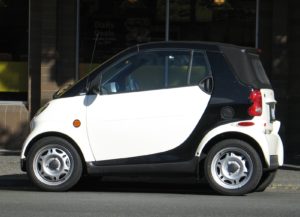
Best Quick Tips Ever (Volume 2)
Here are some more super quick, highly accessible techniques that we could be teaching clients! (Remember, don’t use these if the underlying theory isn’t already part of your clinical repertoire, please!) If you haven’t seen Volume 1, see those here.
- Imagine Yourself on a Hot Air Balloon (or Better Yet, Sitting on a Satellite) – This is an old Stoic notion, “Plato’s View” (more about that here) that current research also suggest can quickly reduce distress. This visualization exercise allows you to change perspective, throwing even the deepest, most overwhelming pains into relief against all the rest of what’s happening in the world.
- Half Smile – A DBT classic, this is possible the quickest and most available emotion regulation technique of all! The brain and body work both ways, you know!
- Sunlight – 5-15 minutes in the sun is enough to boost serotonin and improve mood. Add to that the fact that you’re probably removing yourself from a less pleasant situation to a more relaxed/pleasant situation by going outside (yay, behaviorism works!) and getting a little nature fix (bonus mood enhancer!), and it’s even better.
- Also, as a reminder, regular moderate sun exposure helps prevent depression, and if you do it in the morning, helps to improve sleep! Oh, and cognitive function! And work satisfaction!
- Jumping Jacks (any kind of intense exercise immediately) – Even five minutes of intense exercise can improve mood in several ways – by “using up” stress hormones if they’re present (yes, that’s a gross oversimplification), by getting you out of a stressful or uncomfortable situation (unless you’re going to bust out some crunches right in the middle of the stressful work meeting), and/or providing an intense enough distraction to act as a distress tolerance skill.
- And, over time, a really excellent treatment and prevention strategy for depression! (WAY better than antidepressants)
- Say the Thing, Out Loud. Even to Yourself. Especially to Yourself. – That icky feeling is more tolerable once it has words that go along with it (especially if it has accurate words that go with it). But, emotional labeling acts as an implicit emotion regulation strategy, and it’s relatively effortless. Plus, the benefits of expressive writing (decreased anxiety, depression, negative rumination, and improved mental and physical health, including enhanced immune functioning) extends to speaking aloud as well!
- Drink a Whole Glass of Water – not only does this just give you a tiny break from whatever stressor you’re in, it’s an opportunity to engage in basic self care and possibly to engage in a mindfulness practice. But there’s also research showing that being even a little dehydrated can contribute to fatigue, low alertness, and negative mood. So a simple glass of water might help you feel better, and help you gear up for more active coping! (Also, many of us work in environments where this is something we could even offer clients in session.)
Comment below: Your ideas for super cool, underutilized quick tips? Or have you ever used any of these with clients?
